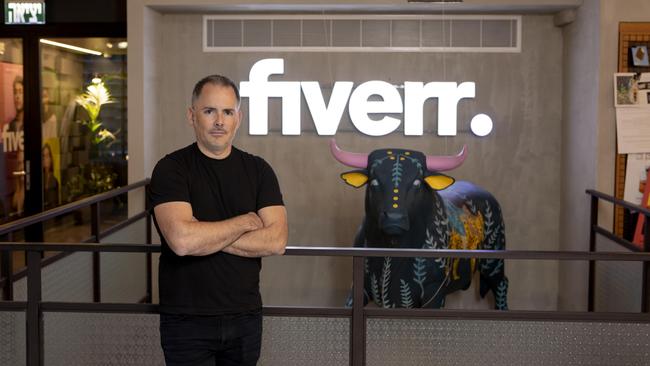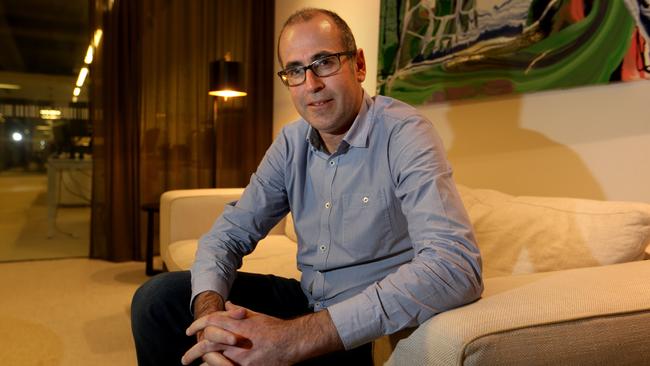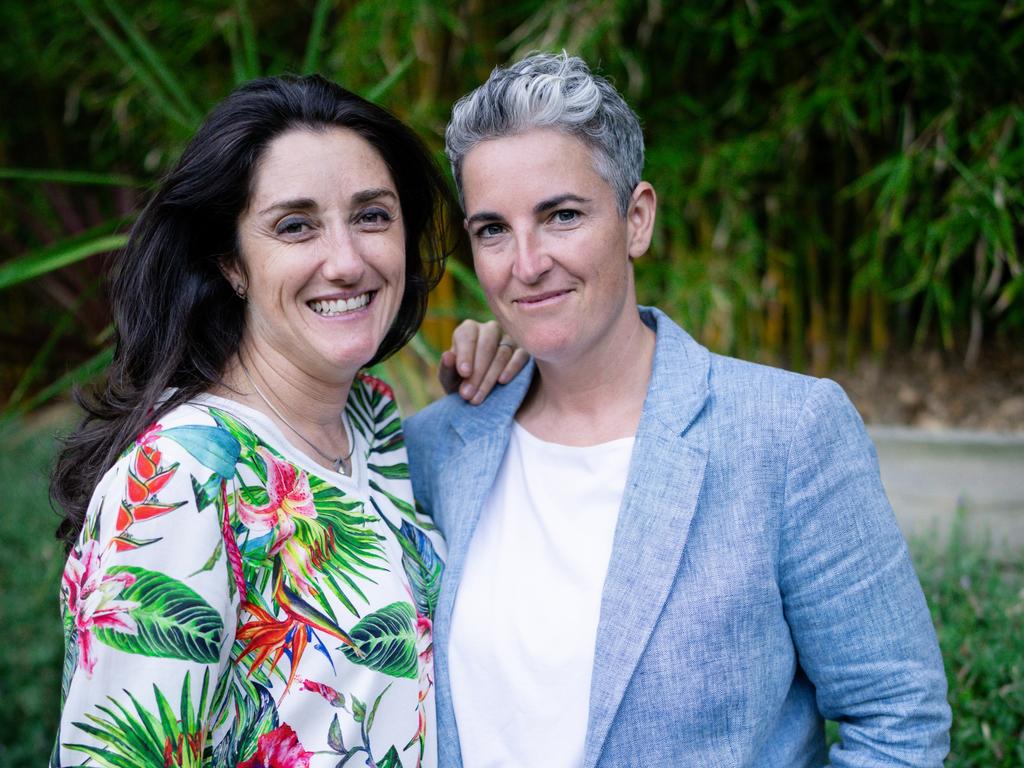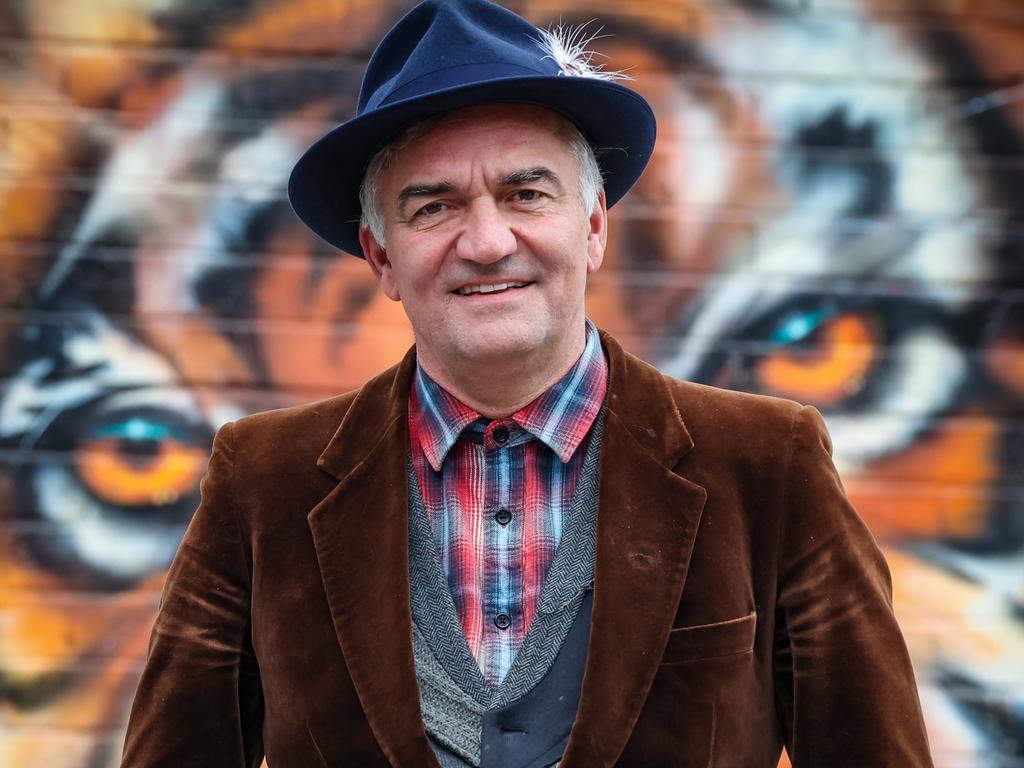‘I might die’: How armed conflict shaped Israeli tech unicorn founder’s leadership drive
Micha Kaufman was barely out of his teens when he was thrust on to the battlefield. It’s where he developed the leadership skills to create and drive global freelance marketplace Fiverr.

Yom Hazikaron is Israel’s official memorial day for its fallen soldiers and victims of terrorism that falls in late April or early May every year.
It is always a day of deep sorrow for the Kaufman family.
“We lost family members across Israel’s wars. Here, memorial day is a very sad, sad day. It is a moment in time that you really devote to bringing up the old stories and remembering the people,” Micha Kaufman, the founder and CEO of Israeli freelance marketplace Fiverr, tells me from his office in Tel Aviv.
“To understand why it is so important to be respectful of the sacrifice. It is a part of the fabric of our country.”
Kaufman was barely out of his teenage years when he served in the air force and army for three years, in line with Israel’s compulsory military service regimen.

Since the age of 21 he has also been part of the military reserve – service continues until the age of 45 – and Israelis can be away from their families on active service for up to 45 days a year.
“I’ve been in many combat situations. I was in the army in the late ’80s when Israel had conflicts up north with Lebanon,” he says.
“The level of terror was very high. But one of the reasons why drafting your people works is because it makes them fearless. Being in combat makes your realise ‘Holy crap, I might die’.
“These are situations that shape you and shake you up.”
He’s lost not only family, but good friends in battle.
“It is pretty tough thinking as a 20 year old about losing friends but now as a 50 year old I know that there is a legacy to it,” Kaufman says.
“We have the obligation of building something here that respects their sacrifice and their family’s sacrifice.”
Kaufman says his military service has been pivotal giving him the mindset and temperament to be an entrepreneur.
In 2009 he co-founded Fiverr, a platform which has disrupted the freelance industry by offering an online marketplace for creative and digital services.
The founders chose the name because all of Fiverr’s services cost only $5 when the business was launched.
Australian venture capital firm Square Peg Capital, led by Paul Bassat and backed by James Packer, was an early backer of Fiverr and Australia is one of the Israeli group’s top five global markets.
Now upon reflection, Kaufman would not trade the life and business skills he learned in battle for the world.
“It forces you to grow up and face the unpleasantry of the reality of the world. It forces you to start developing leadership skills very early on,” he says.

“It is the highest responsibility, to be in charge of the lives of others. You might say it is hijacking some of the fun years of life, but I do think this helps shape you as a grown up.
“In my army service, I got to do super interesting stuff, not just from an operational and combative standpoint but from a technological standpoint. I was lucky enough to be in places where I had a chance to express my strength; to take responsibility and lead teams.
“So for me this was a very important and positive experience. The way I started shaping as a leader came from the army. I think it gives you an advantage as a leader.”
Kaufman is now a father of two children, which has given him a parent’s perspective on military service. His eldest recently ended his three-year tour of duty and his youngest will begin in two years’ time.
Of course he worries about his children taking part in battles. But he says it is part of a culture that makes Israel great.
“As a dad I am extremely concerned. It would have been great if they didn’t have to serve,” he says.
“But the situation doesn’t allow us to cancel this concept. There are many things that are very positive in this experience. The people you serve with become lifetime friends.
“Most importantly it informs you how important it is to not just win wars and survive, but to resolve conflicts.”
An unconventional upbringing
Kaufman’s parents immigrated to Israel from Argentina in 1967, just as the brief Arab-Israeli battle known as the Six Day War took place in June that year.
He was born four years later in a kibbutz – an agricultural communal settlement – in the northern part of Israel.
He remembers it as an extreme, “pretty radical” social experience.
“Nobody owned anything, no one had a salary and you were given basic things for your existence,” he recalls.
“You worked for the benefit of everyone else. Kids in a kibbutz didn’t grow up with their parents. We used to sleep in a children’s house with 50 kids and a few mums.
“When my brother was born a few years after me, this is what broke my parents, they decided they would not go through that experience of having their child grow up away from them again. This was one of the main reasons why people decided to leave the kibbutz.”
But not everything in the experience was negative.
“There were many things that failed in the concept of the kibbutz, but building a community of like-minded people sharing the same values and wanting to engage and build something beautiful together is definitely something I took from it,” he says.

“That was incorporated in the early days of Fiverr. It is a community providing access to opportunities for talented people and access to talent for businesses.
“They share the same growth path and there is a lot of power in connecting that as a community.”
After leaving the kibbutz, Kaufman watched his parents build their new life from nothing. They had no support or safety net.
His father started as a mechanical engineer and became a world-renowned figure in the semiconductor industry, while his mother worked in education and managed the household.
“Seeing my parents take the risks they took to build the family, their lives and their success was something that became ingrained in me. They had no fall back position,” he says.
“They shaped my approach to life and business.”
Kaufman attended Haifa University where he studied law, specialising in intellectual property and initially worked as an advocate at a law firm.
In 2003, he founded his first company called Keynesis, which provided security software and encryption for tablets, portable devices, and clouds.
“Most of the investment in high tech then was local, so the mantra was create a company quick and sell it as fast as possible. Building companies from Israel was pretty tough,” he says.
“We didn’t have the talent and infrastructure so you were building products for cultures you didn’t know in the Far East, Europe and the USA.”
In 2005, he founded Spotback, a personalised Israeli news site.

As American venture capital firms increasingly identified Israel as a hotbed of talent, a tech infrastructure was established which over the past decade has spawned some of the world’s biggest technology firms. Kaufman has been asked many times to leave his homeland.
In addition to Square Peg, the backers of Fiverr include US investors Bessemer Venture Partners, Accel Partners, and Qumra Capital.
“If you asked our VCs, they would love us to relocate to the San Francisco Bay area. In my first companies there was pressure to do it. I used to spend over one third of my time in the US, which was tough,” he says.
But so far he has resisted the lure of America. Today 60 per cent of Fiverr’s staff are based in Israel, the rest are in Europe, the Ukraine and the US. Since its launch, Fiverr has acquired six companies, two of which are Israeli.
He stresses Fiverr was founded as an international company, but is proud of its heritage and headquarters remaining in Tel Aviv.
“I decided from a patriotic standpoint, this is where I wanted to build a great company that would hire people, that would allow talented people to make a living and gain the experience to build companies,” Kaufman says.
“I want them to be the next generation of Israeli entrepreneurs.”
The world comes calling
In June 2019 Fiverr listed on the NYSE, having previously raised $111m in venture funding from its backers. But it had started its preparations for the move two years earlier, which Kaufman says was essential to get the business “into the cadence” of public reporting, especially with the additional compliance and governance requirements.
He says one of his key lessons from the experience is that you need a predictable business to be in the public markets.
“Secondly, if you are there for the short term and for fast growth, then you are in for disappointment. It is a long play and you don’t have control of your share price. You need consistency of messaging, execution and over time things will sort themselves out,” he says.
“What this also taught me is you can’t get wrapped into the quarter-by-quarter thinking. I have taught my senior executives to spend the majority of their time in the future, not in the present.”
He recalls hosting a dinner with his senior management team when Fiverr’s market value surged to a record US$11bn in February 2021. At one point in the evening, in between the fine food and wine, he interrupted the conversation.
“I put that number – $11bn – on a screen. I said ‘Look at it now and forget it, it is an aberration! We aren’t there yet’.”
Fiverr’s share price has stayed resilient during the reset of tech valuations over the past year, falling only 14 per cent.
Kaufman, who is also a partner in a venture capital firm, welcomes the recalibration.
“The reality is, this is a good thing. It can be a bit of a clean-up. Those that have created sustainable businesses on healthy foundations will survive. That is not a bad thing. It is a moment in time,” he says.
“Everyone is a bit edgy and over-reactive right now. Once economies start stabilising and inflation goes down, that will encourage more consumption. For us that will be a great period.”
Since the worst of Covid-19, Fiverr has moved up-market to start building solutions for big business and is now working with tech giants such as TikTok, Amazon, Stripe, and Monday.com to build customised customer and tech support marketplaces, powered by skilled, certified freelancers.
Known as Fiverr’s enterprise strategy, it gives a client access to on-demand expertise which can be scaled up and down, allowing them to build contingency and agility into their workforce.
“We are building the next phase of the organisation and are putting a lot of investment into it,” Kaufman says of the strategy.
“But it is an iterative process and it will take time to build it. It now represents 10 per cent of the business and it is going very nicely.”
Kaufman is now 52. He’s looking forward to Fiverr’s 15th birthday next year and to the future. But that doesn’t stop him wondering at least once a year if it is time for another challenge. So far, he keeps coming up with the same answer.
“You need to have a discussion with yourself every now and then to ask ‘Am I the right person to lead this company’? It is not ‘am I talented enough. Do I have the right energy, the right drive’,” he says.
“So far, every time I do it I get more excited. The opportunity looks larger and larger each time I ask.
“So as long as that answer is yes, I’m good. I’m having fun.”






To join the conversation, please log in. Don't have an account? Register
Join the conversation, you are commenting as Logout